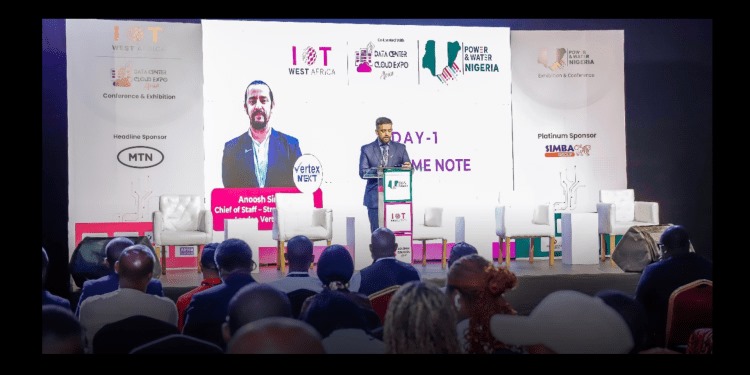Imagine a Nigeria where the lights stay on, clean water flows into every home, and the internet is fast and reliable. That future may be within reach, thanks to innovations showcased at the Power & Water Nigeria Exhibition and IoT West Africa Conference held in Lagos.
The event, which began on May 13 at the Balmoral Convention Centre, brought together experts, inventors, industry leaders, and government officials to present new technologies aimed at improving power supply, water access, and internet connectivity across the country.
Attendees explored products such as solar-powered water pumps, smart electricity meters, and advanced networking tools designed to enhance internet reliability.
These technologies are not just cutting-edge innovations — they address everyday problems faced by millions of Nigerians.
For instance, solar energy systems offer consistent electricity in areas where the national grid remains unreliable.
Smart meters ensure consumers pay only for the power they consume, while digital monitoring tools enable governments and businesses to manage their resources more efficiently.
Experts at the conference emphasized that electricity, water, and internet access are deeply interconnected, and improving these services can significantly boost economic growth.
Ina Alogwu of 9mobile and Tunji Alabi of Infratel Africa spoke on how improved internet and power infrastructure can help small businesses operate more efficiently, attract investment, and create employment opportunities.
Bala Tyoden from the Rural Electrification Agency highlighted how modern technology enables the remote monitoring of mini-grids and solar panels, ensuring quick responses to faults and reducing power downtime.
Aristotle Onumo of the National Information Technology Development Agency (NITDA) noted that African governments must implement strong policies to encourage the adoption of smart devices and digital tools.
He described the Internet of Things (IoT) — a network of connected devices that communicate and share data — as a transformative force for healthcare, urban planning, and e-commerce across the continent.
However, he cautioned that technology alone isn’t enough. “Governments must guide its use and create greater access for the population,” he said.
2025 event, organised by Vertex Next, focused on local solutions applicable in both urban and rural communities. The goal is to help Nigeria build a more resilient energy system, a dependable water supply, and a smarter digital infrastructure.
“This event acknowledges the interdependence between energy infrastructure and digital services,” said Meher Bedi, Director of Exhibitions at Vertex Next.
“Promoting reliable and sustainable power solutions directly supports the growth of data centres across Africa.”
She stressed that renewable energy, particularly solar power, is critical for expanding access to electricity for homes and businesses. Data centres, which require a constant power supply, are in turn vital for supporting internet services and digital innovation.















